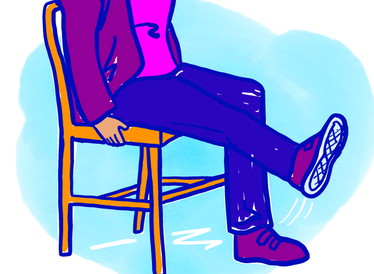Being able to access the information you need when you need it has never been more important. But for the team at Age UK that's producing it, staying up to date with changes, ensuring quality and accuracy at all times, and getting used to working from home has been a challenge. So, what have we done to ensure we’re giving older people and their families the information they need and expect from us?
Making the most of our website
When the lockdown was first announced there was a lot of new information: new terms such as ‘shielding’ and ‘self-isolating’ were being used; while things we were used to doing day to day, such as the shopping, were now surrounded by questions. We knew, as an organisation, we had to respond quickly.
Our colleagues worked around the clock to understand the new information and what it meant for older people. In the Content team we then worked with our colleagues to build website pages for a new coronavirus section – ‘The Hub’ as we called it internally. We managed to create the initial content, which we felt covered all the main areas of new information, in a little over 48 hours.
Age UK's coronavirus information hub
Information on coronavirus, including updates on how you can look after yourself and loved ones, comments from Age UK, and ways you can support older people.
The need for answers
As the days went by, we added more and more to our coronavirus section. To make sure it was the information people wanted, we kept a keen eye on our website analytics to tell us what visitors are looking for, we reviewed all of the calls flooding into our Advice Line, and used our Virtual Assistant chat tool to see the questions people were asking. Naturally there are some answers we can’t provide, in which case we signposted to someone that could.
Some of the topics were as we might have expected – questions around shopping, health conditions and going out and about. Others, meanwhile, weren’t things you’d initially think about but were no less important – we were surprised, for example, by how many people wanted guidance around whether they could still walk their dog.
Since the Government announced lockdown, there has been a 46% increase in people visiting the information and advice pages on our website compared to the same period last year.
Anxiety and reassurance
Reviewing and producing our information in this way kept users at the heart of it. However, it was also clear just in the phrasing of the questions or the notes from our calls just how worried people were. No matter the question, the sense of genuine anxiety was clear.
This demonstrated to us not only how important the information we were producing was, but how crucial it was to write it and display it in the right way. People coming to us worried, scared or in crisis don’t want to have to search for this information or read stuff that isn’t relevant. We had to make it clear, concise and easy to find.
Using printed materials to ensure we reach more people

While producing content for the website allowed us to be dynamic and respond quickly, it didn’t get the information to everyone. What about those that don’t have access to the internet or a computer? Or those that don’t feel comfortable being online? This is something we’re very conscious about at Age UK, so how could we reach everyone?
At Age UK we have a suite of 39 information guides covering topics from money and legal to housing, health and care. These are printed guides that are free to order through our advice line and can also all be found electronically on the website. Based on the number of enquiries we were getting, we decided to produce one specifically about coronavirus.
Adapting our processes to suit time pressures
Producing a coronavirus print guide provided its own challenges. Content on the website can be changed and updated relatively quickly, but print is different. There are also costs involved with both designing the guide and printing it.
We spoke to the design agencies that have helped us in the past – Harrison Agency and Lark – about what we were thinking of doing. Incredibly, they both offered to help completely free of charge. At a time that charities are feeling the financial effects of the current circumstances, we were so grateful for their generosity.
Usually, our information guide update process takes at least a couple of months start to finish – this includes reviewing the existing information, rewriting or updating information, having the experts check it’s all accurate, having the guide designed and going through the sign-off process.
Though we knew it would be a tall order, we set ourselves an internal deadline of 1 week to produce a brand new information guide. We managed to send the guide off to the printers on day 8. This process taught us that when emergencies arise, we’re able to streamline our processes accordingly, which was a very useful thing to learn.
To date, the guide has been downloaded more than 4,500 times online and we have distributed more than 5,000 printed copies.
Working together
A defining feature of our new ways of working has been the emphasis on collaboration. Strangely, as colleagues, even though we’ve never been so far apart geographically, professionally we’ve never felt closer.

That’s not to say we don’t usually work closely together – it’s one of the things I love most about working at Age UK – but over the last few weeks, the organisation has pulled together exceptionally.
A lot of the content we have been producing, such as the information guide, has only been possible because everyone collaborated so seamlessly. The agencies were amazing, working way beyond normal working hours to make sure we had something to look at when we logged on the next morning. Meanwhile our incredible colleagues made themselves available throughout what was an almost overwhelming week to answer any technical questions and review content as we wrote it.
This new way of working has taken some getting used to. We didn’t adapt overnight, and there have been times when things felt quite chaotic, but it was necessary – and rewarding.
Everything else that’s going on
Like everyone, those working at Age UK have been adapting to a new way of life. Colleagues have experienced symptoms of the virus. Some staff members have lost loved ones to it, while others have worried about vulnerable and older relatives.
We’ve all taken some time to get used to working remotely. Many of our meetings have been gate-crashed by children of parents trying to balance work and childcare/home-schooling. There’s also been immense creativity and willingness to get stuck in for the people we’re here to help, which has been hugely inspiring.
It’s these experiences that have made this work even more personal than usual. Coronavirus is affecting us all. As someone that lives alone, being isolated for the last 10 weeks without the usual contact at work or with family and friends has further highlighted the importance of the small interactions we have when popping to the shops or receiving calls from people checking in. I know, personally, all my work at Age UK has been impacted by this experience and perspective. I'm certainly not the only one.
Age UK's coronavirus information guide
A short information guide written with older people, their families and carers in mind, and produced with their help - as well as input from expert peer reviewers.

